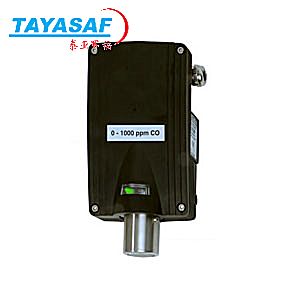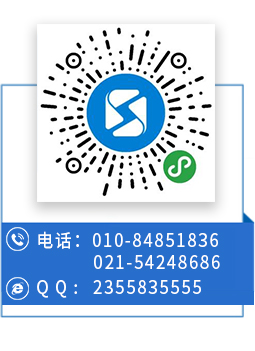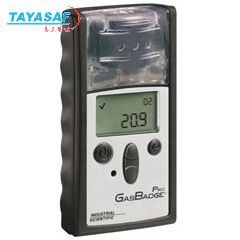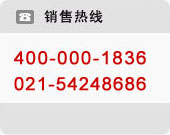

CC28DA可燃气体检测器
| 订货号: | MM-41458-00 |
| 产地: | 德国 |
| 品牌: | |
| 开发编号: | N |
| 市场价: | ¥ |
| *此产品根据配置不同价格不同 |
| *此价格为参考价格,具体价格以订单合同为准 |
- 我在现场:
- 产品视频:

- 产品描述
- 技术参数
- 技术文档
- 相关产品
- 明细价格
- 购买流程
产品描述:
Fastest monitoring of flammable gases
Superior technology
Wherever flammable gases or vapours are found, the CC28 provides the best solution for safe monitoring. ATEX-certified design, built-in EX-certified horn and bright LED lights allow safe operation within highly flammable areas. The gas alarm is transmitted to the central control panel, simultaneously warning the control room and the worker in the danger area.
Fastest detection available
Using GfG’s unique sensor technology, coupled with a special "chimney-effect" the CC28 transmitter has the shortest response time in the market, detecting flammable gases using catalytic bead technology.When used in conjunction with our GMA controller series, a programmed delta alarm can shorten the response time still further. This gives an extra level of safety when handling explosive gas risks.
Smart sensor technology
Installation and sensor exchange are quick and easy using pre-calibrated smart, plug-in sensors. One-man calibration/ adjustment is possible directly at the transmitter, without opening the housing.
Wherever flammable gases or vapours are found, the CC28 provides the best solution for safe monitoring. ATEX-certified design, built-in EX-certified horn and bright LED lights allow safe operation within highly flammable areas. The gas alarm is transmitted to the central control panel, simultaneously warning the control room and the worker in the danger area.
Fastest detection available
Using GfG’s unique sensor technology, coupled with a special "chimney-effect" the CC28 transmitter has the shortest response time in the market, detecting flammable gases using catalytic bead technology.When used in conjunction with our GMA controller series, a programmed delta alarm can shorten the response time still further. This gives an extra level of safety when handling explosive gas risks.
Smart sensor technology
Installation and sensor exchange are quick and easy using pre-calibrated smart, plug-in sensors. One-man calibration/ adjustment is possible directly at the transmitter, without opening the housing.
The advantages at a glance
World-wide shortest response time
Three choices – no display with display or with display and built-in audible and visual alarms
ATEX-Certification II 2G EEx dem [ib] IIC T4
EEC design inspection certificate BVS 04 ATEX E 132 X, functional test: BVS 05 ATEX G 001 X 0158
Ex-certified visual and loud acoustic alarm
Less wiring required
Simple sensor exchange using smart, plug-in sensors
Long sensor lifetime
Low maintenance costs
Status and function display directly on the transmitter
One-man calibration/ adjustment without opening casing
Operation possible in inaccessible places via remote control (option)
Remote control (option)
Some flammable gases are lighter than air (e.g. methane). If a transmitter is installed close to the ceiling, it can be connected by a fixed installed cable with a plug connection to the remote control. Thus, all adjustments can be made comfortably from floor level. With one remote control device, an unlimited number of transmitters can be controlled in this way.
Using transmitters without display, the remote control shows the current values on its’ own display. The display of the remote control mimics the transmitter display exactly. Inspection, maintenance and adjustment are therefore greatly simplified. Using the remote control inspection, service and calibration can be performed easily by one person.
Some flammable gases are lighter than air (e.g. methane). If a transmitter is installed close to the ceiling, it can be connected by a fixed installed cable with a plug connection to the remote control. Thus, all adjustments can be made comfortably from floor level. With one remote control device, an unlimited number of transmitters can be controlled in this way.
Using transmitters without display, the remote control shows the current values on its’ own display. The display of the remote control mimics the transmitter display exactly. Inspection, maintenance and adjustment are therefore greatly simplified. Using the remote control inspection, service and calibration can be performed easily by one person.
技术参数:

泰亚赛福作为众多知名品牌的合作伙伴,优惠的价格+完善的售后服务体系向您提供产品。font>

泰亚赛福作为众多知名品牌的合作伙伴,优惠的价格+完善的售后服务体系向您提供产品。font>
技术文档:

泰亚赛福作为众多知名品牌的合作伙伴,优惠的价格+完善的售后服务体系向您提供产品。font>
- 在线浏览:
- 文档下载:

泰亚赛福作为众多知名品牌的合作伙伴,优惠的价格+完善的售后服务体系向您提供产品。font>
相关产品:

泰亚赛福作为众多知名品牌的合作伙伴,优惠的价格+完善的售后服务体系向您提供产品。font>

泰亚赛福作为众多知名品牌的合作伙伴,优惠的价格+完善的售后服务体系向您提供产品。font>
明细价格:

泰亚赛福作为众多知名品牌的合作伙伴,优惠的价格+完善的售后服务体系向您提供产品。font>
| 定货号 | 产品名称 | 规格配置 / 简介 | 市场价/(会员价) |
|---|---|---|---|
| MM-41458-00 | CC28DA可燃气体检测器 | /() |

泰亚赛福作为众多知名品牌的合作伙伴,优惠的价格+完善的售后服务体系向您提供产品。font>
购买流程:

泰亚赛福作为众多知名品牌的合作伙伴,优惠的价格+完善的售后服务体系向您提供产品。font>
①购买产品:点击“生成订单”→填写产品数量、联系方式并提交→会员顾问订单处理→合同签订。
②咨询产品:请联系会员顾问或致电会员客服电话。
③如果您还不是我们的会员,请先注册。
④最小起订数量:1
注意:本产品唯一个人现金委托收款人,如汇入其它个人账户本公司不承担任何责任
维护担当:
上线时间:
投诉电话:13801126385 13911302309
②咨询产品:请联系会员顾问或致电会员客服电话。
③如果您还不是我们的会员,请先注册。
④最小起订数量:1
注意:本产品唯一个人现金委托收款人,如汇入其它个人账户本公司不承担任何责任
维护担当:
上线时间:
投诉电话:13801126385 13911302309
联系方式
电话北京:400-000-1836 分机 或拨0转总机
上海:021-54248686 分机840 / 211 或拨0转总机
上海:021-54248686 分机840 / 211 或拨0转总机
传真北京:010-84852750/84854139
上海:021-64418200
上海:021-64418200

泰亚赛福作为众多知名品牌的合作伙伴,优惠的价格+完善的售后服务体系向您提供产品。font>
品牌简介
德国GFG公司成立于1961年,是生产便携式气体探测设备的企业。其产品主要有: 单一气体便携式探测器、采矿业用带报警功能多合一便携式气体探测器、气体探测器、控制卡、点式或…德国GFG公司成立于1961年,是生产便携式气体探测设备的企业。其产品主要有: 单一气体便携式探测器、采矿业用带报警功能多合一便携式气体探测器、气体探测器、控制卡、点式或开路式红外气体探测器及带有气体探测报警器的矿灯。我公司为德国GFG公司的中国北方销售平台,为其产品提供了良好的平台,以信得过的质量和优质的服务在业界称道。凭借价格低,质量好,到货快而多年来一直深受客户的好评。我们拥有完善的销售和服务网络,在全国拥有多家分公司和战略合作伙伴,欢迎前来选购!
您最近浏览的商品














 德国GFG
德国GFG
